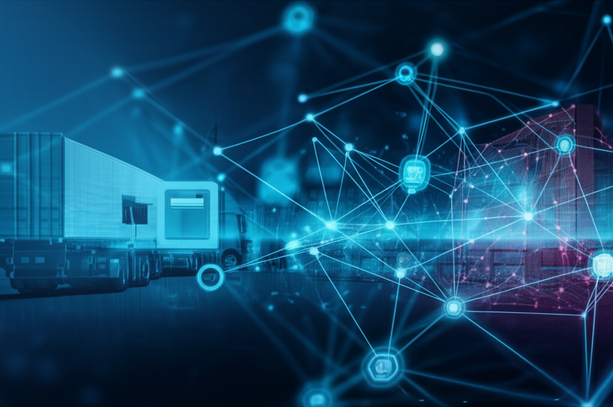The Future of Blockchain Technology: Beyond the Hype
Blockchain technology, once synonymous primarily with cryptocurrencies, is rapidly evolving into a foundational layer for a decentralized digital future. From revolutionizing data management to fostering new economic models, the potential applications of blockchain extend far beyond its initial scope. Understanding the trajectory of this innovation requires looking at its deeper integrations, community-driven advancements, and practical applications that are shaping industries worldwide.
The journey of blockchain has been marked by significant milestones, demonstrating its robust capabilities in creating transparent, immutable, and secure digital ledgers. As we move further into the 21st century, the future of blockchain technology is poised to intersect with other cutting-edge fields, most notably artificial intelligence (AI) and big data, creating powerful synergies that promise to redefine our digital interactions and economic systems.
The Evolving Landscape of Blockchain Technology
Blockchain’s initial appeal stemmed from its ability to facilitate secure, peer-to-peer transactions without intermediaries. However, its true power lies in its broader application as a distributed ledger technology (DLT) capable of recording any form of data in a verifiable and tamper-proof manner. This fundamental characteristic has opened doors to innovation across various sectors, pushing blockchain far beyond mere financial instruments.
Beyond Cryptocurrency: Practical Applications
While Bitcoin and Ethereum remain prominent examples, blockchain’s utility now spans supply chain management, healthcare, intellectual property, and even digital identity. Companies are leveraging blockchain to ensure product authenticity, streamline logistics, secure patient records, and protect creative works. For instance, in supply chains, blockchain provides an immutable record of every step a product takes, enhancing transparency and traceability from origin to consumer.
The integration of blockchain with enterprise systems is also gaining momentum, allowing for more secure and efficient data exchange between businesses. This shift towards practical, real-world solutions is a strong indicator of blockchain’s maturity and its long-term potential to serve as a critical infrastructure for various industries. Platforms dedicated to exploring the intersection of these technologies, like DataPandas, frequently highlight how data analytics and AI are being combined with blockchain for optimized performance and insights.
Synergies with Artificial Intelligence and Big Data
The combination of blockchain with artificial intelligence (AI) and big data represents one of the most exciting frontiers for technological advancement. These three technologies, individually powerful, become exponentially more impactful when integrated, addressing some of the most pressing challenges in data integrity, security, and computational efficiency.
AI-Powered Blockchain for Enhanced Security and Efficiency
AI can enhance blockchain networks by optimizing transaction routing, predicting network congestion, and identifying potential security vulnerabilities in real-time. Conversely, blockchain can provide a secure, transparent, and auditable foundation for AI systems, particularly concerning data provenance and algorithmic transparency. This is crucial for building trust in AI, especially in sensitive applications like autonomous vehicles or medical diagnostics, where accountability is paramount.
Furthermore, AI algorithms can process the vast amounts of data stored on blockchain ledgers to uncover insights and patterns that would be impossible for humans to detect. This could lead to more efficient resource allocation within decentralized autonomous organizations (DAOs) or more sophisticated fraud detection mechanisms in financial services, reinforcing the future of blockchain technology with intelligent automation.
Data Integrity and Decentralized AI Models
One of the significant challenges for AI development is ensuring the integrity and authenticity of training data. Blockchain offers a solution by providing an immutable record of data sources and modifications, effectively creating a verifiable audit trail for datasets. This capability is vital for mitigating biases in AI models and ensuring that AI decisions are based on reliable information. Moreover, blockchain can facilitate the creation of decentralized AI marketplaces, where users can securely share and monetize their data for AI training without relinquishing control or privacy.
The Role of Community and Hardware in Blockchain Adoption
Beyond the technical integrations, the growth and adoption of blockchain technology are heavily influenced by vibrant communities and the underlying hardware infrastructure that supports these networks. These elements are crucial for fostering innovation, enabling participation, and ensuring the continued decentralization of blockchain ecosystems.
Community-Driven Innovation on Platforms like BitcoinTalk
Online communities play a pivotal role in the blockchain space, serving as forums for discussion, collaboration, and the dissemination of knowledge. Platforms such as BitcoinTalk have historically been instrumental in the development of new projects, critical analysis of existing ones, and the robust exchange of ideas that drive the evolution of cryptocurrencies and blockchain protocols. These communities often act as early adopters, testers, and critics, providing invaluable feedback that shapes the direction of technological advancements.
The collective intelligence of these decentralized communities helps identify emerging trends, address technical challenges, and navigate the complex regulatory landscape. They are a testament to the open-source ethos that underpins much of the blockchain movement, encouraging transparent development and shared ownership of the technology’s future.
Mining Hardware and Infrastructure
The physical infrastructure supporting blockchain networks, particularly mining hardware for proof-of-work blockchains, is another critical component. Specialized hardware, like that showcased by brands such as IceRiver EU on social media, underpins the security and operational integrity of many blockchain systems. These devices perform the computational work required to validate transactions and add new blocks to the chain, ensuring decentralization and resistance to censorship.
The ongoing innovation in mining hardware efficiency and the development of more energy-efficient consensus mechanisms (like proof-of-stake) are vital for the scalability and sustainability of blockchain. As the technology matures, the infrastructure will continue to evolve, becoming more accessible and environmentally conscious, further solidifying the real-world foundation for the future of blockchain technology.
Future Trends and Predictions
Looking ahead, several key trends are likely to shape the next decade of blockchain innovation, pushing it further into mainstream adoption and integrated technological frameworks.
Web3 and Decentralized Internet
The vision of Web3, a decentralized internet built on blockchain technology, promises to shift control from large centralized entities back to individual users. This future entails decentralized applications (dApps), self-sovereign identity, and novel ways to interact with digital content and services without intermediaries. Web3 aims to create a more equitable and transparent internet, where data ownership and privacy are paramount.
Regulatory Evolution and Mainstream Acceptance
As blockchain technology matures, so too will the regulatory frameworks surrounding it. Governments and international bodies are increasingly developing clear guidelines for cryptocurrencies, stablecoins, and decentralized finance (DeFi). This regulatory clarity, while challenging in its implementation, is crucial for fostering institutional adoption and building public trust, paving the way for blockchain to become a standard component of global financial and technological infrastructures.
Conclusion
The future of blockchain technology is not just about digital currency; it’s about a fundamental shift in how we manage data, interact digitally, and build trust in an increasingly interconnected world. The synergy with AI and big data promises more intelligent and efficient systems, while community engagement and robust hardware infrastructure ensure its continued development and decentralization. As we navigate the complexities and opportunities ahead, blockchain is set to remain a transformative force, reshaping industries and empowering individuals for decades to come.



